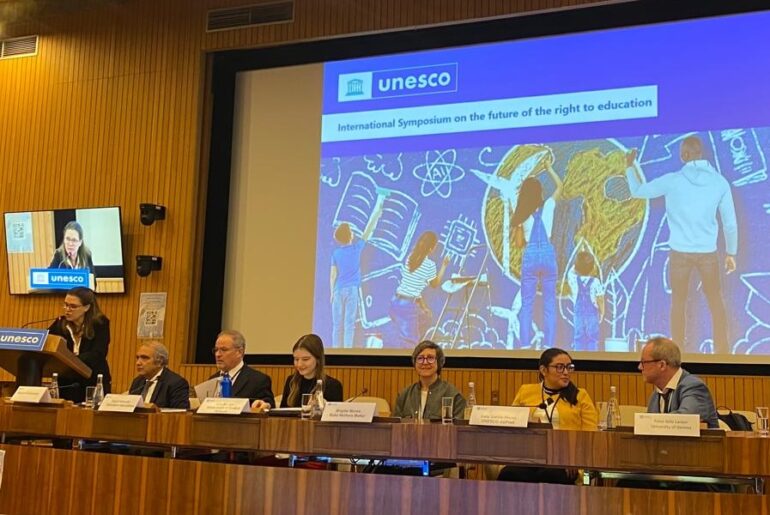MMM Voices #Covid-19
We are dedicating this page to hearing first hand from a number of our grass roots members around the world. In a series of recorded interviews conducted by MMM teams, we hear their stories seldom covered in mainstream media, as they reveal the unique challenges their organizations are facing during this global crisis.
CEPRODIH, Uruguay
Adriana Abraham, Director of CEPRODIH, delivers a strong testimonial very much in line with MMM’s advocacy, about the importance of supporting mothers and the positive impact that it can have.
–
mothers2mothers, South Africa
Irene Nkosi, m2m Mentor Mother, draws parallels between COVID-19 and the HIV/AIDS epidemic that hit Sub Saharan Africa thirty years earlier. She recounts the suspicion and social stigma that is very much still alive in the community.
–
Edo Group, Colombia
Benoit and Patricia Bichon, Edo Group – La Guajira, Colombia, explain the vulnerable situation in which Venezuelan, Wayuus and Afro-Colombian mothers found themselves during the Covid 19 crisis.
–
Más Familia, Spain
Roberto Martinez, Director of Más Familia, explains how this crisis will change our behaviour as citizens and as workers forever, how labor flexibility has arrived to stay and what is ’emotional salary’.
–
Vivre Heureux/Living With Happiness, Rwanda
Aimée Utuza, president and founder of Vivre Heureux (Living with Happiness) and Rwanda Mothers’ teams in Rwanda, shows how solidarity even at a distance is paramount in the crisis. With her Zirkana’ campaign, she invites us all to act: “it never hurts to try”.
–
Mothers & Midwives Support (MMS), DRC
Claire Thibaut, President of MMS explains how women’s communities have organized themselves on the one hand to sew protective masks and on the other, to increase local vegetable production.
–
Mame Pentru Mame, Romania
IAna Maita, president of Mame Pentru Mame, (Mothers for Mothers), explains how she and her teams managed to meet the needs and anxieties of mothers-to-be and mothers with newborn babies throughout Romania in this confusing Covid period.
–
Mamas for Africa, DRC
Kati Devos, the Chairman of the Board of Directors of Mamas for Africa, explains how the region is not only affected by the Covid 19 crisis, but also by severe flooding, making the situation all the more difficult for these vulnerable women in South Kivu.
–
Afammer, Spain
Carmen Quintanilla, National president of Afammer, explains how they have been able to reinvent themselves during this pandemic, thanks to the rural women who, as always, have kept their towns alive through courage and solidarity.
–
L’Heure Joyeuse, Morocco
Leila Cherif, President of L’Heure Joyeuse, tells us how much her staff’s mobilisation has made it possible to maintain vital aid to mothers and babies in great difficulty during this time of containment. Solidarity and technology have been essential factors for survival.
–
Friendship, Bangladesh
Runa Khan, Founder of Friendship, an NGO that helps the poor in otherwise inaccessible areas of Bangladesh, explains why the Coronavirus pandemic has been a wake up call and stresses that we have a lot to worry about…unless we can create a more equitable future.
–
HAD / En Avant les Enfants (EALE), DRC
Alain Englebert, a member of the MMM Board of Directors, speaks with Jean-Philippe Byamungu, head of HAD, an association which is supported by EALE, and which works with nearly a thousand grandmothers and abandoned young mothers in Goma, DRC.
Jean-Philippe explains how urban agriculture enables mothers and grandmothers to feed themselves during the pandemic. An increase in the number of these urban vegetable gardens could provide mothers with income-generating activities which in turn could improve the economy of Goma for the benefit of the population.
–
Awaj, Bangladesh
Awaj Founder Nazma Akter voices her concerns and anger over the lack of social protection for the workers of the garment sector she represents in Bangladesh. She asks for justice and compensation for lost earnings.
–
Mothers at Home Matter (MAHM), UK
Anne Fennel, President of Mothers At Home Matter (MAHM) in the UK, stresses the importance of recognizing the value of care and the family unit internationally. She emphasizes that if this crisis has shown anything it is that a lot of the invisible, unpaid work is done at home.
–
Otitsara, Madagascar
Aliette Abraham, President of Otitsara Madagascar, spoke to us about the mental load increase on mothers during these difficult times and strongly advocated for a better world post COVID-19, based more on human values rather than economic growth and profit making.
–
ViAllaite, Cameroon
ViAllaite founder Caroline Tilot rings a warning bell: because mothers are afraid to go to hospitals during the pandemic, children are at risk of dying from other diseases, more dangerous for them than Covid-19.
–





